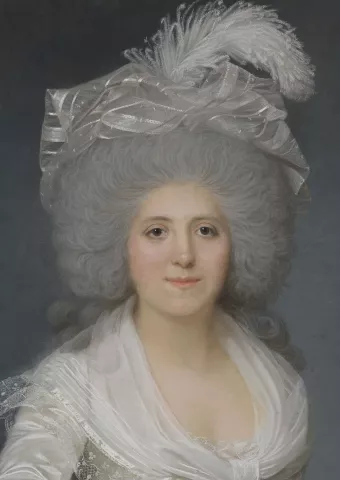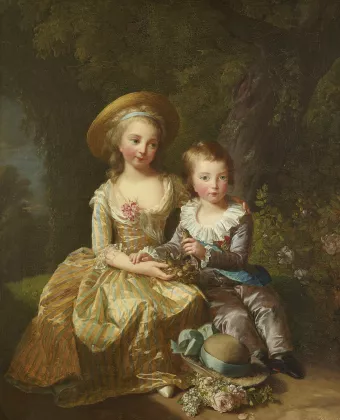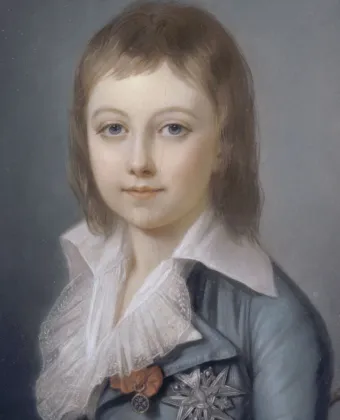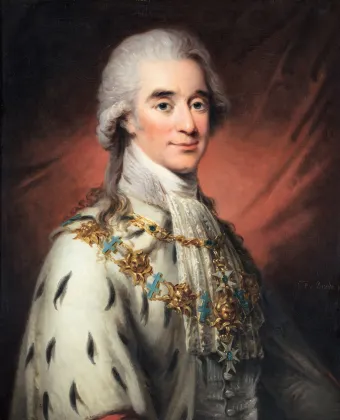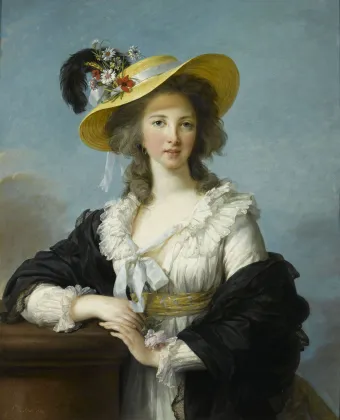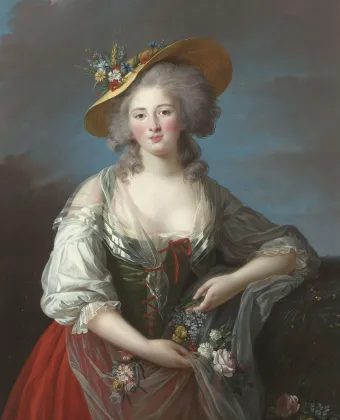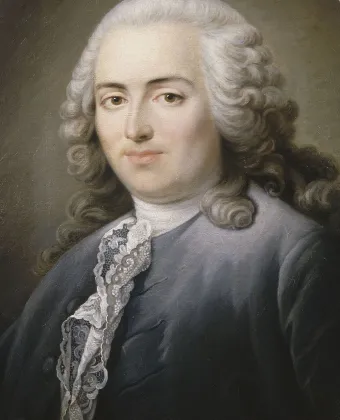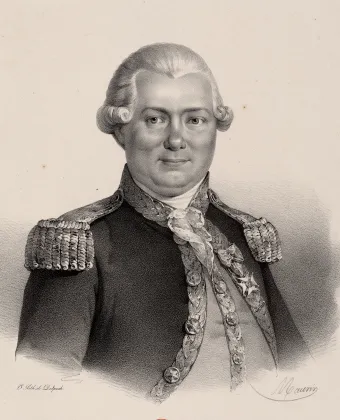Jeanne Louise Henriette Genet, later Madame Campan, received a literary education and learned Italian and English. At the age of fifteen she entered the royal court of Versailles, recruited as reader to the younger daughters of Louis XV. When Marie Antoinette arrived at Versailles in 1770 Madame Campan became Second Lady-in-Waiting to the young princess. Sixteen years later, in 1786, Madame Campan was officially promised the position of First Lady-in-Waiting, but would never actually hold the post on account of the Revolution. Marie Antoinette also put her in charge of her Treasury and made her guardian of the queen’s jewellery.
Madame Campan rapidly became a friend and confidante to Marie Antoinette, sharing in the secrets of the queen and the court for the next eighteen years. She recorded her experiences for posterity in her Memoirs, painting a vivid picture of life at the court of Louis XVI.
These memoirs present an intimate portrait of the queen’s life and personality and offer a highly personal, subjective take on events. Madame Campan was separated from the royal family by the Revolution, but kept up correspondence with the queen. Ruined by the Revolution, she returned to her original vocation and founded a successful school for young girls in the Saint Germain district of Paris. She came to the attention of Napoleon, whose two sisters she had raised, and in 1807 the Emperor made her director of the Maison d’Education de la Légion d’honneur in Écouen. She remained in this post until 1814, before falling into disgrace when the Bourbons were restored to the throne.



